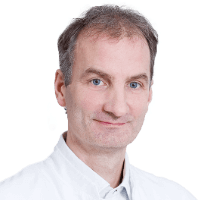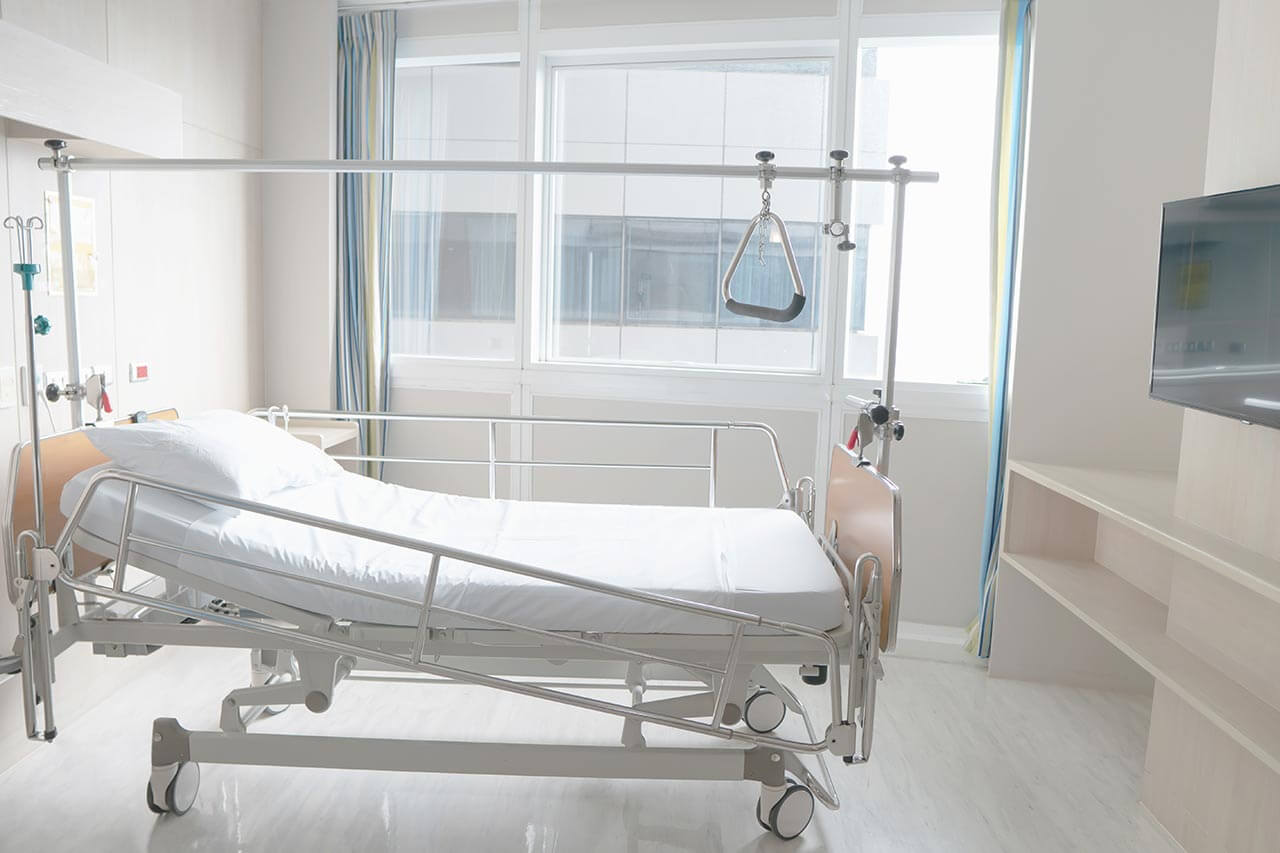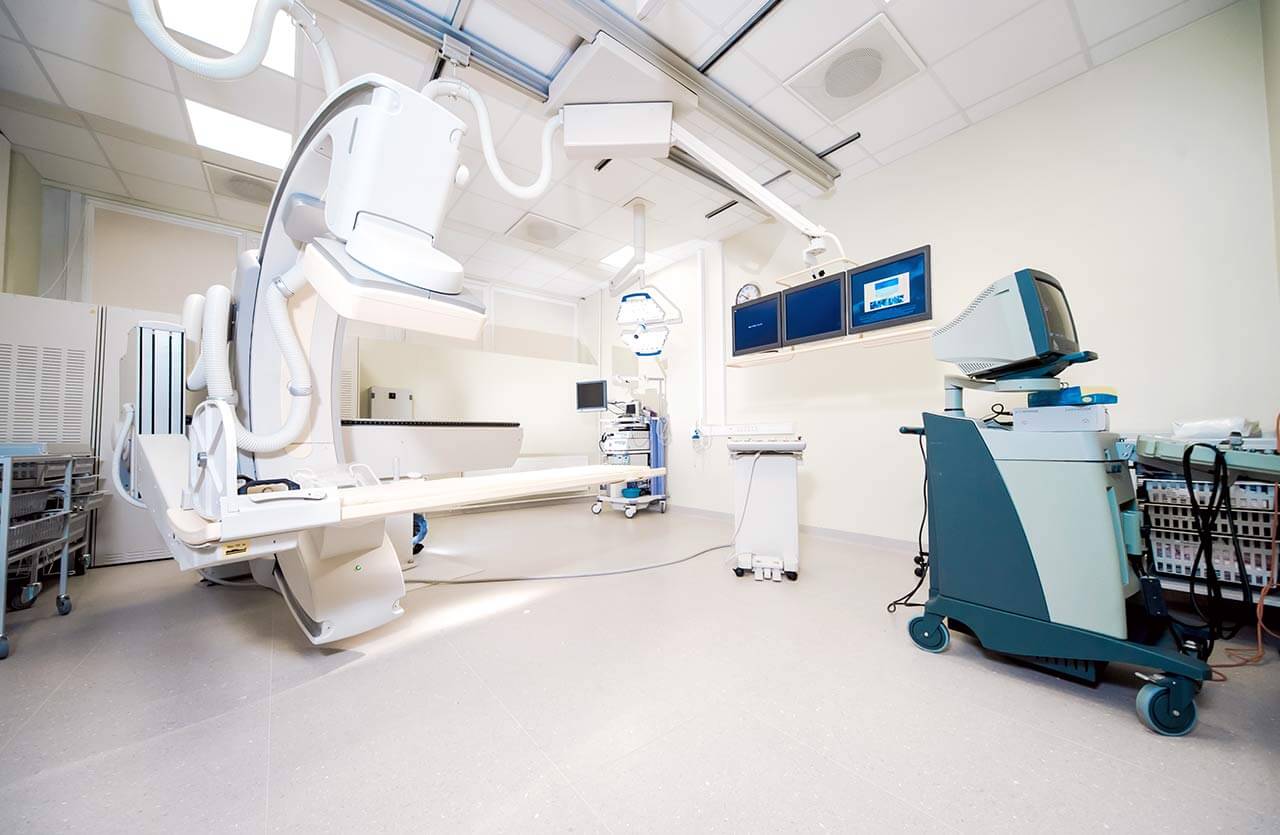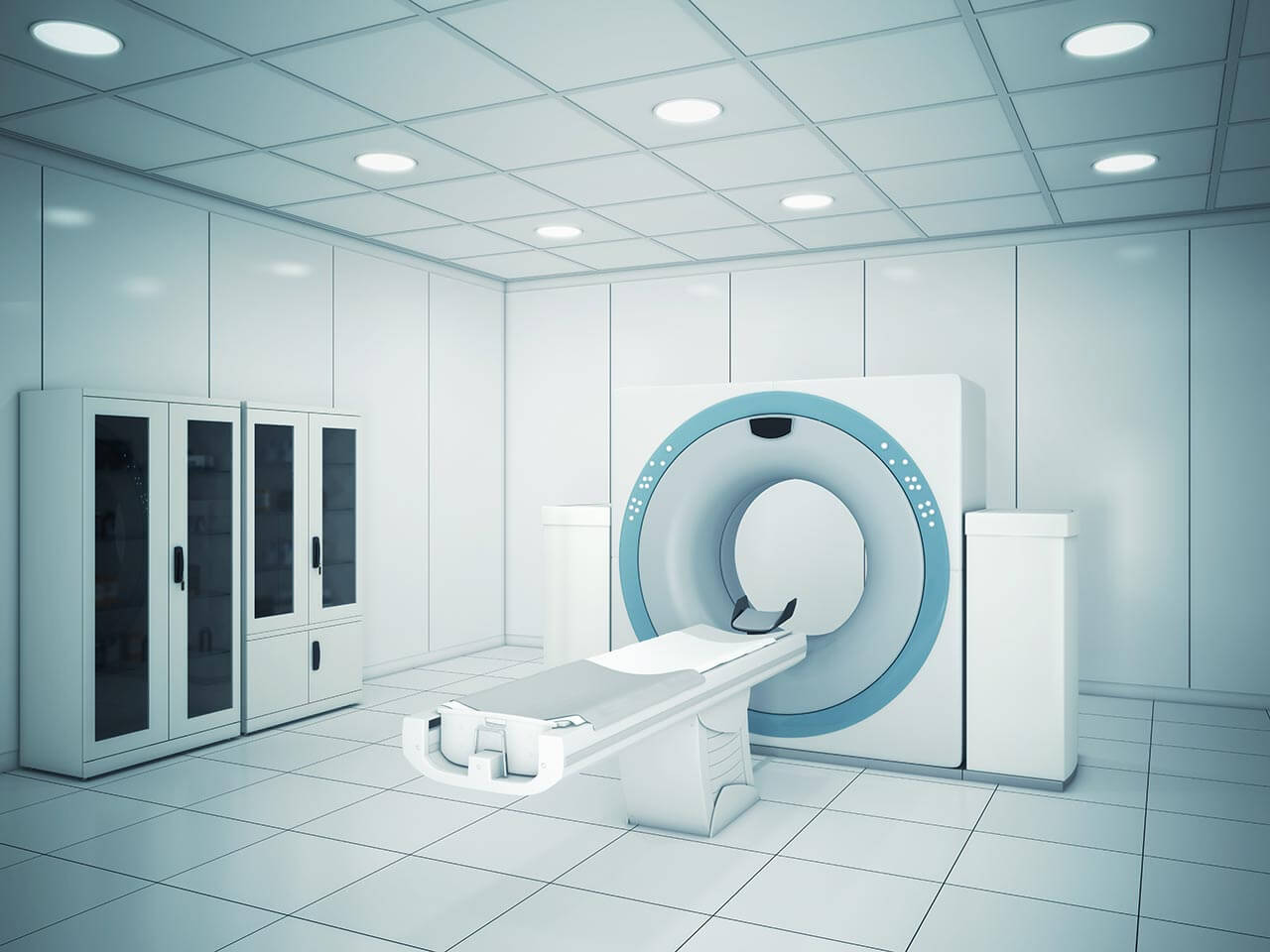
The program includes:
- Initial presentation in the clinic
- clinical history taking
- review of medical records
- physical examination
- laboratory tests:
- complete blood count
- general urine analysis
- biochemical analysis of blood
- inflammation indicators (CRP, ESR)
- indicators blood coagulation
- neurological examination
- CT/MRI scan
- neuropsychological tests (on indications):
- ENMG (electroneuromyography)
- EEG (electroencephalography)
- SEPs (somatosensory evoked potentials)
- VEPs (visually evoked potentials)
- BAEP tests (brainstem auditory evoked potential)
- preoperative care
- neuronavigation-assisted surgical removal
(resection) of spinal astrocytoma - histologically and immunohistochemically
examination of the remote tissues - blood transfusions (if needed)
- 1-day intensive care unit stay
- symptomatic treatment
- control examinations
- the cost of essential medicines and materials
- nursing services
- full hospital accommodation
- explanation of future recommendations
Required documents
- Medical records
- MRI/CT scan (not older than 3 months)
- Biopsy results (if available)
Service
You may also book:
 BookingHealth Price from:
BookingHealth Price from:
About the department
The Department of Adult and Pediatric Spinal Surgery, Scoliosis Treatment at the Werner Wicker Clinic Bad Wildungen offers the full range of services in these areas. The department is one of the largest and most successful medical facilities of its kind in Europe. The department's team of spinal surgeons treats various spinal diseases, ranging from scoliosis, kyphosis, spinal fractures to spinal degenerative diseases and spinal tumors. The department performs about 1,500 major surgical interventions on the spine every year. The team of doctors at the facility works closely with experts in the field of neurology and radiology. The department is headed by Dr. med. Axel Hempfing.
The patients of the department undergo the comprehensive diagnostics, the results of which are the basis for developing an effective treatment regimen. The diagnostic capabilities include computed tomography, magnetic resonance imaging, classical X-ray studies, electroencephalography, electromyography, ultrasound scans, electrophysiological tests and other methods.
The priority focus of clinical practice is conservative and surgical treatment of scoliosis. The department's experience in this field is over 30 years. The patients with scoliosis are consulted in a special outpatient clinic. In addition, the department has its own workshop for the manufacture of corsets for the correction of scoliosis according to the individual parameters of the patient. If invasive intervention is necessary, then modern surgical techniques are used. The operations are usually performed at the age of about 14 years. In case of congenital scoliosis, surgery can be performed at an earlier age to prevent further progression of spinal curvature. Some patients with juvenile idiopathic scoliosis may be offered a surgical procedure to adapt the spinal column to body growth. It is worth noting that in 2011 the department became the first in Germany where the growing rod was applied.
The department also successfully treats spinal fractures using both conservative and surgical techniques. As a rule, the basis of conservative treatment is the use of special corsets. If surgical treatment is necessary, the surgeons perform complex operations, for example, the intervention with the removal of the destroyed vertebral body and its replacement with a titanium stabilizing cage. In many cases, after the fracture is fused, the implant can be removed. Thus, the surgeons manage to achieve mobility of the damaged spine.
The department has a special multimodal pain therapy program for patients with chronic back pain. The course of treatment is designed for 15 days. It includes medical measures, psychotherapeutic assistance, physiotherapy, ergotherapy, etc. This unique approach to the treatment of chronic back pain allows to achieve the excellent results and significantly improve the quality of life of patients.
The department's range of medical services includes:
- Diagnostics and treatment of scoliosis
- Idiopathic scoliosis
- Congenital scoliosis
- Neuromuscular scoliosis (muscle paralysis due to cerebral palsy, paraplegia, myelomeningocele, primary muscle diseases, such as muscular dystrophy, spinal muscular atrophy, poliomyelitis)
- Complications of systemic diseases (for example, neurofibromatosis, Marfan syndrome, chromosomal abnormalities, arthrogryposis)
- Diagnostics and treatment of kyphosis
- Ankylosing spondylitis
- Scheuermann's disease
- Post-traumatic kyphosis
- Congenital kyphosis (wedge-shaped vertebrae)
- Diagnostics and treatment of inflammatory spinal diseases
- Diagnostics and treatment of primary spinal tumors, spinal metastases
- Diagnostics and treatment of spinal deformities
- Idiopathic scoliosis with myelomeningocele, spina bifida
- Congenital scoliosis / kyphosis (hemivertebrae and wedge-shaped vertebrae, Klippel Feil syndrome, etc.)
- Congenital kyphoscoliosis (a combination of kyphosis and scoliosis)
- Rib hump
- Diagnostics and treatment of cervical spine disorders
- Degenerative diseases
- Instability, including due to rheumatic lesions
- Injuries and their complications
- Malformations
- Spinal stenosis
- Ankylosing spondylitis
- Tumors
- Inflammatory lesions
- Pathological conditions after a failed operation in the past
- Diagnostics and treatment of lumbar spine disorders
- Degenerative diseases
- Instability
- Spondylolisthesis
- Injuries and their complications
- Malformations
- Spinal stenosis
- Tumors
- Inflammatory lesions
- Pathological conditions after a failed operation in the past
- Post-nucleotomy syndrome
- Diagnostics and treatment of spinal fractures
- Diagnostics and treatment of chronic back pain (multimodal pain therapy)
- Other medical services
Curriculum vitae
Higher Education and Postgraduate Training
- 1990 Study of Human Medicine at the Faculty of Medicine, Georg August University of Göttingen.
- 1992 Preliminary Medical Exam.
- 1994 First Medical Exam.
- 1996 Second Medical Exam.
- 1996- 1997 Practical year, InternalMedicine and Surgery, Albert Schweitzer Clinic Northeim.
- 1997 Optional course in Orthopedic Surgery, University Hospital Bern, Switzerland.
- 1997 Third Medical Exam.
- 2000 Doctoral thesis defense. Subject: "The value of ultrasound examination of newborns for early detection and treatment of hip dysplasia – examination of 10,064 children".
- 2006 Boardcertification in Orthopedics, Medical Association for the State of Baden-Württemberg.
Professional Career
- 1997 - 1999 Internship, Department of Orthopedics, University Hospital Hamburg-Eppendorf.
- 1999 - 2001 Assistant Physician, Department of Orthopedics, University Hospital Bern, as well as Research Fellow, Department of Clinical Examinations, University of Bern, Switzerland.
- 2001 - 2004 Assistant Physician, Department of Adult and Pediatric Spinal Surgery, Scoliosis Treatment at the Werner Wicker Clinic Bad Wildungen.
- 2004 - 2006 Assistant Physician, Department of Orthopedics, University Hospital Heidelberg.
- 2006 Assistant Physician, Department of Adult and Pediatric Spinal Surgery, Scoliosis Treatment at the Werner Wicker Clinic Bad Wildungen.
- 2006 - 2007 Deputy Senior Physician of the Department of Adult and Pediatric Spinal Surgery, Scoliosis Treatment at the Werner Wicker Clinic Bad Wildungen.
- Since 2007 Senior Physician of the Department of Adult and Pediatric Spinal Surgery, Scoliosis Treatment at the Werner Wicker Clinic Bad Wildungen.
- Since 2015 Leading Senior Physician of the Department of Adult and Pediatric Spinal Surgery, Scoliosis Treatment at the Werner Wicker Clinic Bad Wildungen.
Photo of the doctor: (c) Werner Wicker GmbH & Co.KG
About hospital
The Werner Wicker Clinic Bad Wildungen offers modern medical services for the diagnostics and treatment of various spinal diseases. The clinic was founded in 1978 and during this time has won the status of one of the best medical facilities in this field both in the national and international medical arena.
An experienced team of highly qualified doctors of the clinic annually treats more than 4,100 inpatients. The residents of Germany, other countries of the European Union, as well as patients from various parts of the world come here.
The clinic has the necessary technical and human resources to provide quality medical care, including emergency care for patients with recent paralysis. Also, the clinic's specialists are ready to admit patients with complications who had previously undergone therapy in other health facilities.
Since 1998, the clinic has introduced a quality management system based on the requirements of the Cooperation for Transparency and Quality in Healthcare (KTQ). This system ensures monitoring of the quality of medical care, patient satisfaction and safety, as well as indicators of treatment effectiveness.
The clinic positions itself as a high-tech medical center, but at the same time the patient and his health are in the center of attention of all medical personnel. The clinic offers both classical treatment methods and the very latest clinical developments in the field of conservative and surgical treatment of diseases, injuries and deformities of the spine. The treatment is based on an interdisciplinary approach that allows for achieving optimal results and restoring mobility of the musculoskeletal system.
The patients can be sure that their health is in safe hands of the experienced professionals who make every effort so that the patient can again feel complete freedom of movement without pain.
Photo: (c) depositphotos
Accommodation in hospital
Patients rooms
A stay at the Werner Wicker Clinic Bad Wildungen combines treatment and relaxation. The patient rooms of the clinic are particularly comfortable. Each patient room has an ensuite bathroom with shower and toilet. The patient room furnishing includes a modern automatically adjustable bed, a bedside cabinet with a pull-out table, a wardrobe for storing personal belongings, a TV. The patient rooms have access to Wi-Fi.
In addition, next to the patient rooms there is a sauna and a swimming pool, which are just a few minutes walk from them. You can choose to stay in a single or double patient room. Your accompanying person may stay with you in a single patient room. A double patient room will be shared with another patient of the same gender.
The clinic also has enhanced-comfort rooms with a safe, a refrigerator and upholstered furniture.
Meals and Menus
The patient and the accompanying person are offered a daily choice of three menus. If you are on a specific diet for any reason, you will be offered an individual menu. Please inform the medical staff about your dietary preferences prior to the treatment.
Further details
Standard rooms include:
Religion
The religious services can be provided upon request.
Accompanying person
Your accompanying person may stay with you in your room or at a hotel of your choice during the outpatient program.
Hotel
You may stay at the hotel during the outpatient program. Managers will help you choose the most suitable options.




